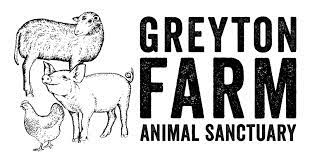We are part of Greyton Farm Animal Sanctuary’s pioneering solutionary outreach programme, in partnership with the Institute of Humane Education.
“We can continue to pluck people from a raging torrent or we can fix the bridge they are falling off. We would rather fix the bridge and, in the animal welfare context, that means educating children about farm animals and, indeed, all animals, awakening in our children their natural empathy, so that the cycle of abuse is interrupted.“
Nicola Vernon, founder of Greyton Farm Animal Sanctuary and Solutionary Educator

The reasons for humane education in our classrooms are compelling:
- Animal cruelty is a serious antisocial behaviour that may help identify troubled youth and dysfunctional families.
- Studies suggest that half of all children in South Africa have been exposed to animal abuse, and one-fifth have perpetrated it.
- Animal cruelty is a symptom of psychological conduct disorder that can lead to inhibition or distortion of empathy.
- Animal abuse is linked to bullying, juvenile delinquency, adult violent crimes and other nonviolent offences. Animal cruelty can be a marker of family violence.
- Ending animal abuse is an important step in ending all violence.
Humane Education was introduced in the Greyton area in 2015 by another NPO started by Nicola Vernon, Greyton Transition Town. With funding from Humane Society International, the programme grew to encompass all six schools and all 2500 school age children in the valley comprising the four villages of Bereaville, Vorstekraal, Genadendal and Greyton. Teachers saw improvements in behaviour, more focused children and, ultimately, improved grades.

We have no doubt that the abuse and ill treatment of animals in our area will reduce significantly as cohorts of children exposed to this teaching grow up and start making compassionate decisions about the animals in their care and in the wider community.
What they are saying about the Humane and Environmental Education Programme

“Since Humane Education was introduced to our school there’s been a big change in our students. I can see that our children are generally calmer. There are still incidents with bullying and other issues, but even those problems are getting less and less. If you look at their behaviour now compared to a couple of years ago there is a huge difference. Our children don’t always have good role models at home, that’s why it’s so good that we can give this kind of teaching at school.”
~ Simon Spielman, Principal LR Schmidt Primary School







